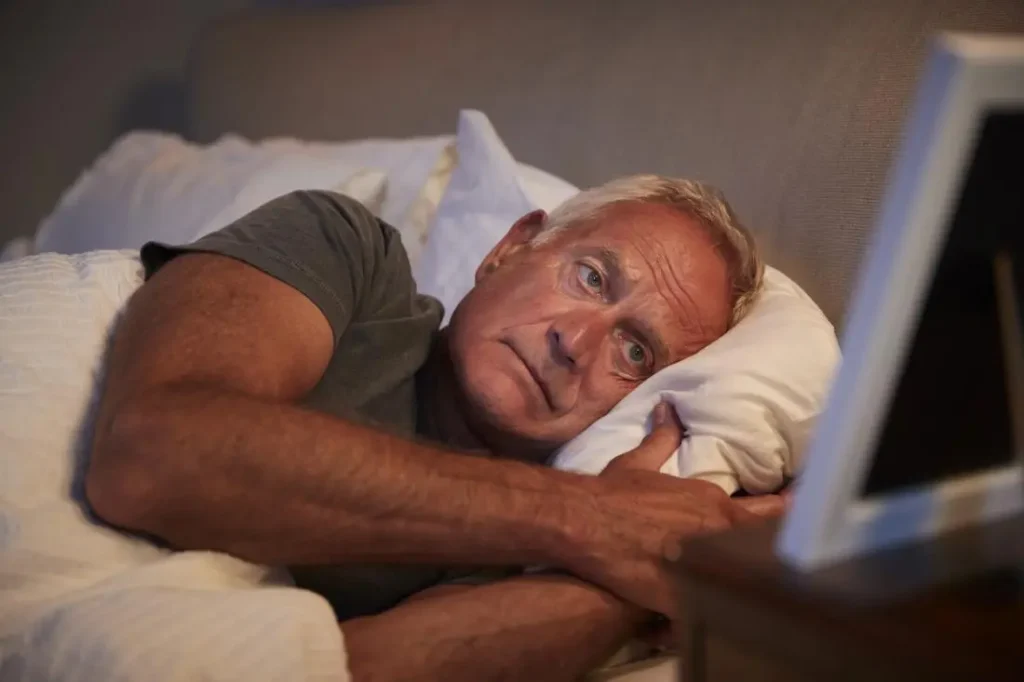
What Causes Hallucinations at Night in Elderly + Treatment
What causes hallucinations at night in elderly? Darkness of night comes and silence reigns over the world. While many people drift off into a peaceful sleep, others drift off into a world of illusions. Nocturnal hallucinations are unexplained sensory experiences that are more common in older adults. This phenomenon can include seeing, hearing, feeling or smelling things that do not actually exist externally.
In addition to the various diseases that many elderly people have, nighttime hallucinations in elderly people are one of the disorders and diseases they suffer from. For this reason, the right behavior and appropriate reactions to this disease on the part of the family or the nurse can have a great impact on the positive treatment process or even the worsening of the disease.
For this reason, in order to raise awareness, we have decided to dedicate this article from humanhealthmag to the important issue of nocturnal hallucinations in the elderly and explain that what causes hallucinations at night in elderly?
What are nocturnal hallucinations and how do they differ from dreams?
Hallucination is one of the diseases that has affected a wide range of people from teenagers to the elderly in recent years. It occurs when a person feels things that are not real. He/she does not have the ability to distinguish between real events and things that are made up by his/her own mind. This disease becomes serious when a person generally lives in the world of her/his mind and makes serious changes in her/his life based on them. But what causes hallucinations at night in elderly?
Hallucinations are usually a symptom of another mental illness or disorder. It means that a bigger and more serious problem has arisen in the person’s soul and psyche, which has shown itself in the form of a hallucination. But sometimes the hallucination itself becomes so serious and is not treated enough that it turns into a separate disorder or disease for the person.
Usually, hallucination can arise as a result of misunderstanding or not understanding things correctly and give a person an impression that is not true at all or at least not as serious and true as they say. If the hallucination is in the early stages, the person can continue his life normally and maintain his/her social image; But if a person suffers from this disorder for a long time and lives without any effort to treat it, this disorder becomes serious and may affect different aspects of his/her life.
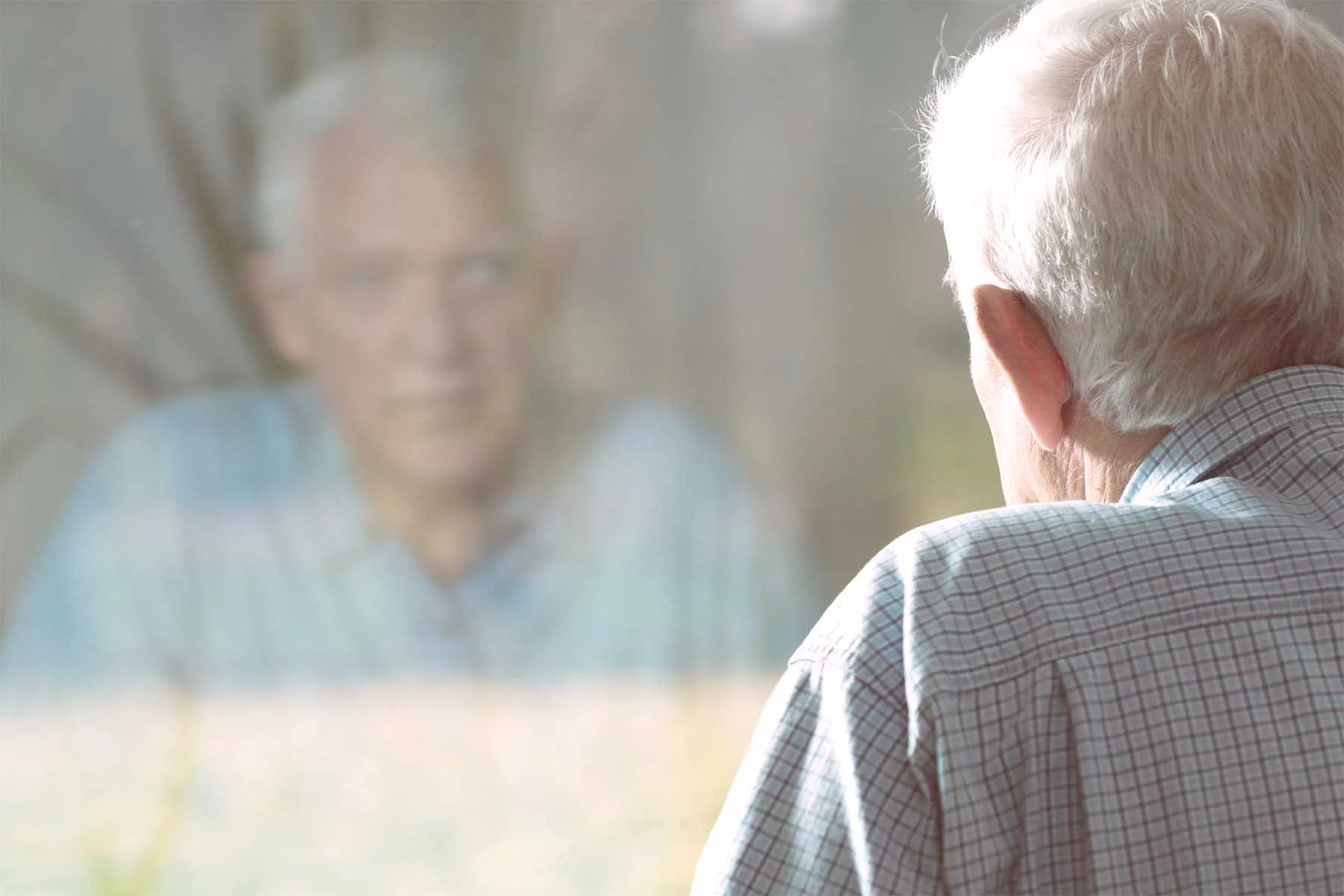
Hallucinations in Older Adults
When an elderly person feels, sees or hears things using his/her physical senses that do not exist in reality and are only in his/her mind, he/she has a hallucination disorder. This disorder occurs in the elderly and other people of different ages in the same way and has similar symptoms. In general, hallucinations in the elderly have two main categories:
- Imaginary hallucination in the elderly
In this type of illusion, the elderly person imagines situations, conditions and events in general that cannot happen in reality and are only his/her mental creation.
- Common hallucinations in the elderly
These types of illusions have the possibility of being real, but they do not exist in the conditions that the elderly feel them. In fact, when they feel and see them as real, they are nothing more than an imaginary image in his/her mind.
What Causes Hallucinations at Night in Elderly?
In general, there is no very specific reason that alone leads to hallucinations at night in elderly! But among the most common and important causes of hallucinations at night in older adults, we can mention the following:
- Genetic background
- Physical and sexual abuse in childhood
- Bad memories recorded in the patient’s brain
- Injury or blow to parts of the head
- Use of drugs that are associated with hallucinations
- Being in certain positions in the brain
- Etc
If the hallucination is a warning about another illness, that more serious disorder or illness that manifested itself as a hallucination is known to be the root cause of the illness. Determining whether a person is hallucinating or not, or what level his/her hallucinating is at all, or what caused it, is a completely specialized issue that neurosurgeons can find out with special medical examinations.
Now that you understand that what causes hallucinations at night in elderly, we will get acquainted with the types of hallucinations of the elderly.
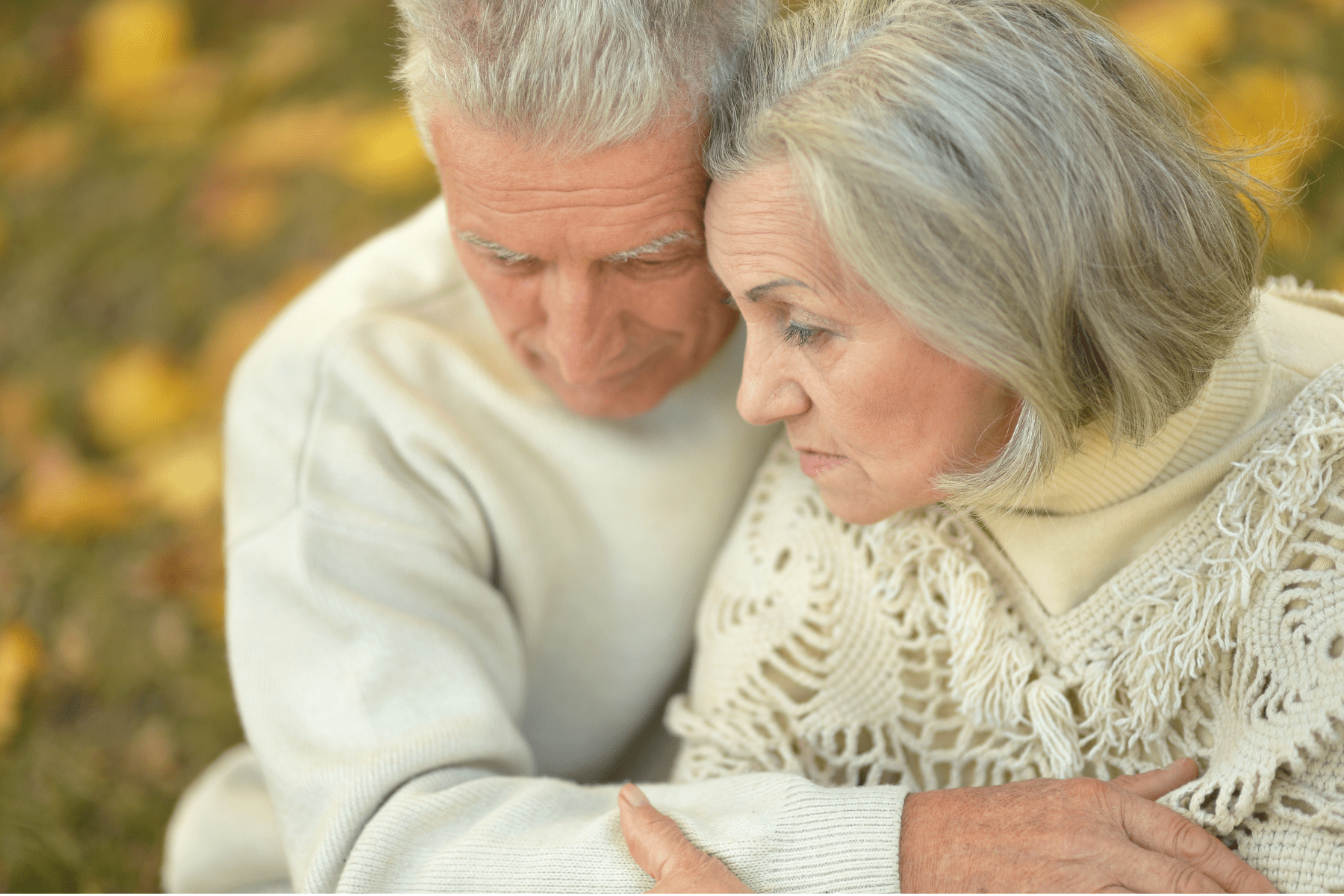
Types of Hallucinations in the Elderly
We mentioned above when there is no real stimulus to create a real feeling, but a person feels it and considers it real, he/she is hallucinating. Because this disorder is related to the five physical senses, it is divided into five main types, which we will introduce below.
- Visual hallucinations
In this type of hallucination, a person sees objects, people, light and things that are completely imaginary and other people are not able to see them.
- Olfactory hallucinations
If the elderly person feels virtual and unreal smells or scents that other healthy people are unable to feel, or if he feels unusual smells and something that does not exist at all, he is involved in this disorder. For example, an elderly person may say that a certain food smells like the devil.
- Gustatory hallucinations
When the hallucination involves the body’s gustatory nerves and sends unreal or wrong flavors and tastes to the brain so that the person believes that he has really tasted that taste, he is involved in a gustatory hallucination disorder.
- Auditory hallucinations
Auditory hallucinations are a type of sensory hallucination in which a person hears sounds that do not actually exist externally. These sounds can be anything from muffled whispers to loud, clear talking. Auditory hallucinations can occur in people of any age, but are more common in the elderly and people with mental illnesses such as schizophrenia.
- Tactile hallucinations
If an elderly person feels touched without being touched by someone, an insect moves on his body, and there is generally a real stimulus for this feeling, he/she is hallucinating.
What Causes Pessimism Hallucinations at Night in Elderly?
Hallucinations and pessimism are one of the most important early signs of Alzheimer’s disease. When this disease is growing and spreading in the body of the elderly, it is associated with symptoms such as aggression, pessimism, hallucinations, restlessness, high stress, etc.
If this case is diagnosed at the same time by visiting a psychiatrist or a neurologist, it is possible to prevent the spread of the pessimistic hallucinations in the elderly by using therapeutic methods and to treat the pessimistic illusion of the elderly.
What causes pessimism hallucinations at night in elderly? It is also good to know that some other factors such as heat, pain, cold, certain physical diseases, etc., can aggravate the illusion of pessimism in the elderly.
What Causes Self-Harming Hallucinations at Night in Elderly?
Self-harming or self-injurious hallucinations in the elderly is a state in which a person assigns great importance to his/her personal and financial health. In such a way that this disorder is out of control and instead of protection it causes torture and the person is completely in agony.
These people hallucinate that an abnormal and supernatural event is taking place that endangers their health and those around them. In order to prevent this mental imaginary event from happening, they are very protective and out of control.
These types of behaviors are a type of mental disorder that manifests itself in elderly people with self-harming hallucinations.
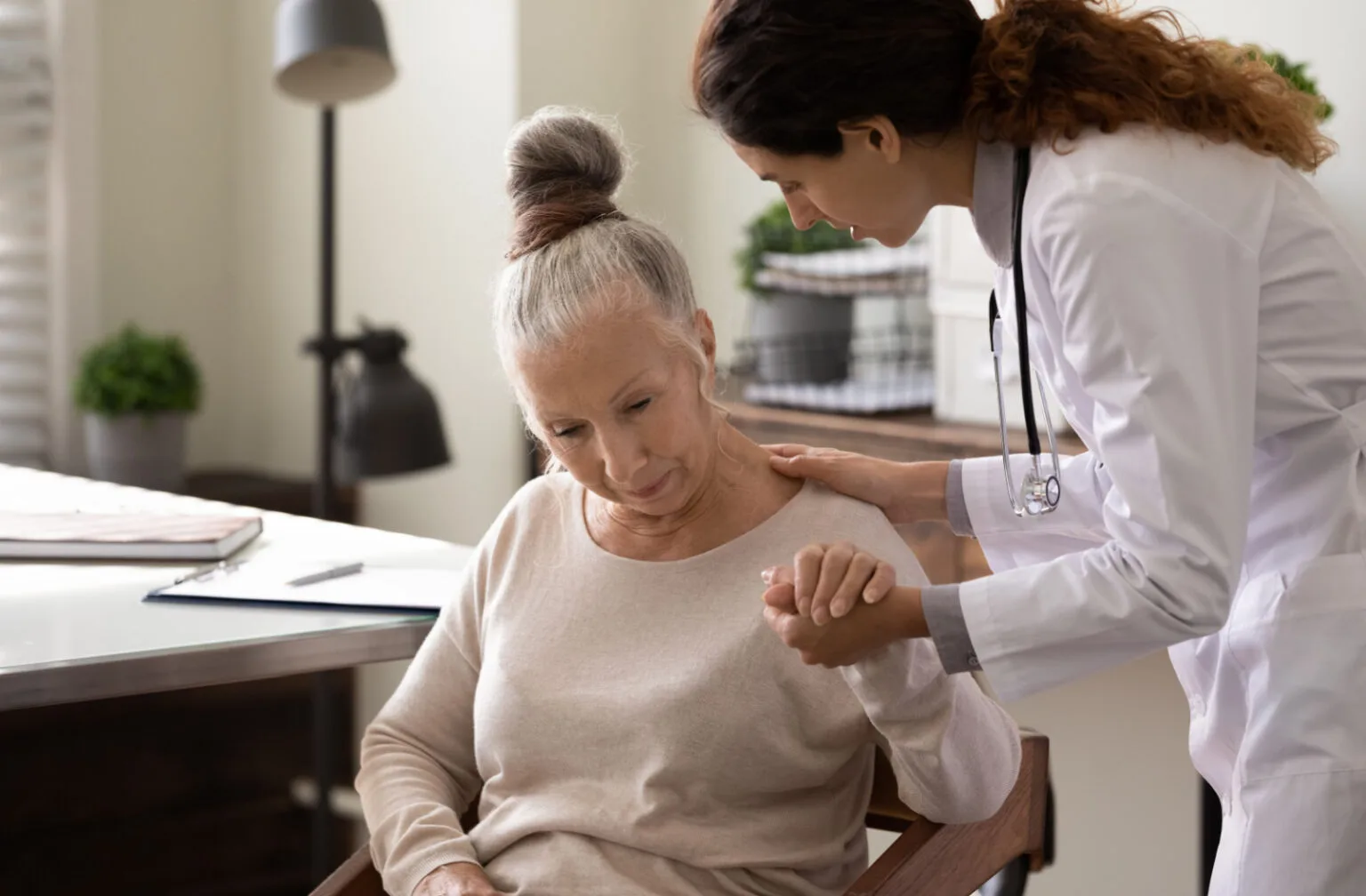
Treatment of Hallucinations in the Elderly
As we mentioned above, hallucinations in the elderly alone are usually not a separate disease and are usually a sign of a larger and more serious mental illness or disorder in these people. For this reason, it is better to undergo specialized examinations by doctors before taking any action to treat hallucinations in the elderly by visiting an online psychiatrist or neurologist to check the health of other parts.
How to control hallucinations in the elderly? If a disease or disorder was observed that caused hallucinations in the elderly, with the necessary measures to treat that disease, the hallucinations in the elderly will also be treated and eliminated.
Treatment of Self-injurious Hallucinations in the Elderly
In order to treat self-harming hallucinations, it must first be determined that this person is suffering from paranoia. To treat it, behavioral therapy should be done in order to reduce the sensitivity of the affected person to criticism and any natural life events.
If you are a person who deals with paranoid people, you should know that you have a difficult road ahead of you and that your success requires a lot of patience with the affected person.
These people may show a lot of hostile and irrational behavior due to their irritability and sensitivity, and their very dependent personality can be very annoying.
For this reason and considering that chemical treatments are not used for this disease and it can only be treated with behavioral therapy, so all people who deal with this person should do their best to avoid doubts and feelings. A person’s fear and insecurity should be broken. They should be able to cure their anxiety and stress and get out of their self-made inner isolation and go back to the normal life and process.
Treatment of Alzheimer’s hallucinations
Unfortunately, Alzheimer’s is a disease that affects many elderly people. Chemical methods, the use of certain substances and foods such as frankincense, the use of traditional medicine methods, as well as softening the brain and mental activities can be very effective in slowing down the progress or even in treating this disease.
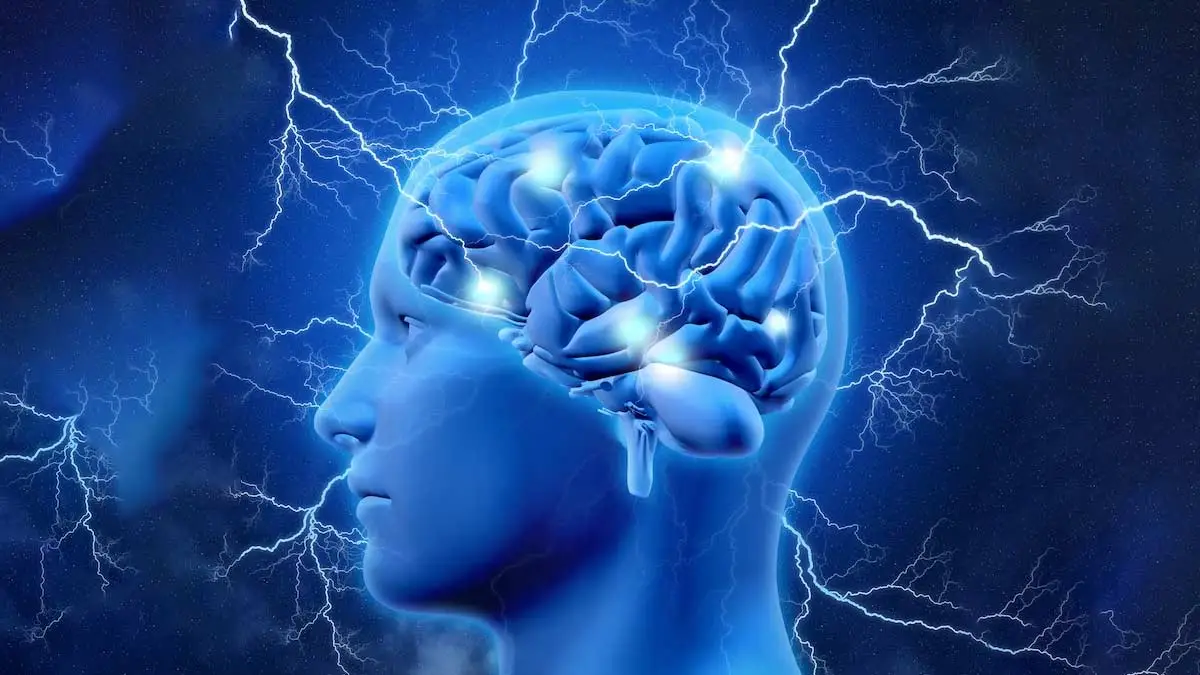
What Should We Do About Hallucinations at Night in Elderly?
The most important thing that is effective in further progressing and worsening hallucinations in the elderly or helping them recover is how the people around them or the nurse treat them.
If you are a person who is in a relationship with an elderly person who has hallucinations, you should follow some points. In the following, we will tell you some of the most important points that you should follow.
The first point is that you should not support their illusions and confirm their unrealistic statements. Try to always describe the reality to them in such a situation with complete calmness.
The most important factor that causes this disorder is the elderly being left alone. So try not to leave them alone and always have at least one person with the elderly to prevent them from thinking and creating illusions in their minds.
Repeating good memories will be very effective for people who are hallucinating. Therefore, you can help the treatment process by telling free short stories for dementia patients, good memories, showing photo and video albums, or placing the elderly in the company of friends and acquaintances who are the same age and have common memories.
Final Thoughts
In this article from humanhealthmag, we talked about what causes hallucinations at night in elderly? Considering that hallucinations in the elderly are a mental illness or even a disorder, usually this type of illness is chronic and progresses over time. Therefore, if you ever see inappropriate, unrealistic behaviors or signs of this disease in a person, it is better to talk to a delusional doctor or a psychiatrist, and if you need a diagnosis, see a neurologist.

FAQs
What Causes Hallucinations at Night in Elderly?
The most important things that can be mentioned as contributing factors to hallucinations in the elderly are: loneliness, the use of drugs with hallucinogenic effects or the use of psychoactive substances, genetic and environmental factors, memories and sensitive situations recorded in the mind, suffering from other diseases. Psychological and, etc.
Is There a Home Remedy for Hallucinations?
Some actions and behaviors such as not leaving the elderly alone, spending time with their loved ones, reviewing good memories, making the elderly feel safe, controlling the drugs they are taking, doing some mental exercises, strengthening the five senses and repeating the facts can improve or prevent this. Disease. But if the hallucinations become too much and uncontrollable, the elderly must be under the supervision of a psychiatrist.
